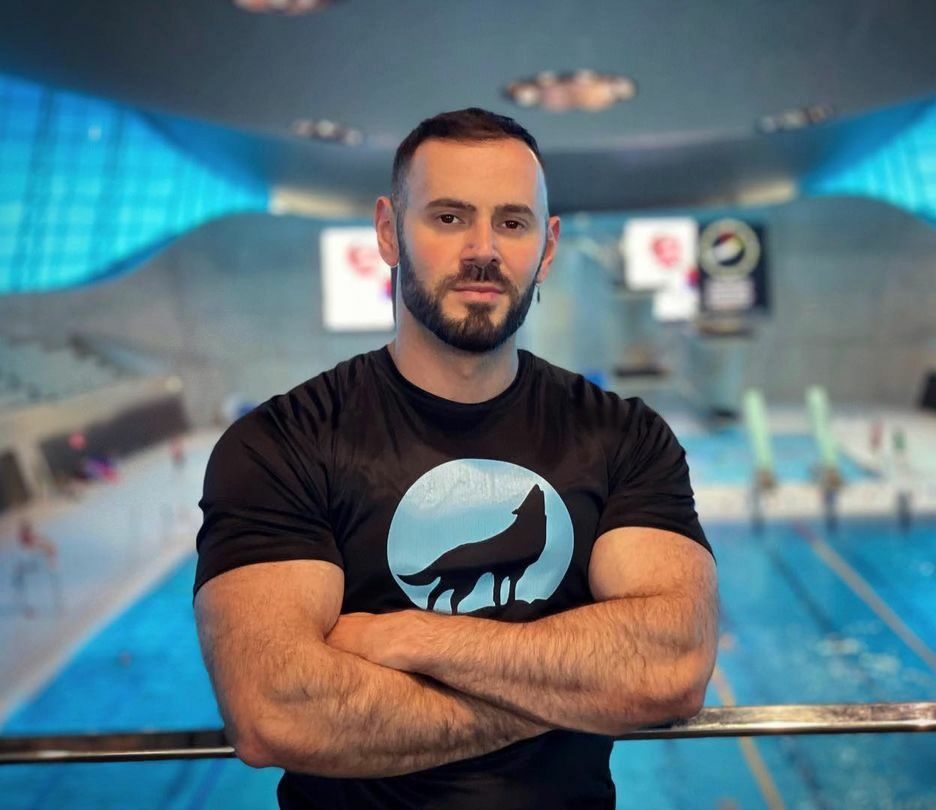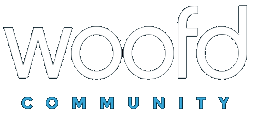Over the years Simon Dunn has experienced a lot- from bullying, to sexually harassment, to surviving a hate crime. But, all this just made him stronger. Simon is a rugby player and former brakeman on the Australian Bobsleigh Team and was the first openly gay male to represent his country in the sport. He is committed to making sport a more inclusive environment for gay men and is determined to encourage more atheletes to come out.
Years of competitive sport and experience has given him the opportunity to broaden his knowledge of health and fitness. He now offers personal training, coaching, online programing and nutritional and dietary advice through his website and will be contributing to Woofd from time to time. Get to know Simon a little better in our intimate interview below.
When did you know you were gay? What did you come out?
Looking back, I knew I was gay from a very young age and can see signs that at the time I didn’t really know what they meant. At about 12 when I started to go into puberty which was when my attraction to males became more apparent as did my lack of attraction to girls. Over the period of about 3 years I slowly came out, first to my close (female) friends until eventually at 16 whilst at a party, slightly intoxicated I came out as bisexual. This was clearly a lie until I was comfortable enough to be honest to myself and those around me.
How long have you been playing sports?
Sport has always been a major part of my life, I began playing rugby league at the age of 4. I played this until I was 18, having come out I moved to Sydney and at that stage in my life I’d learnt to believe gay men couldn’t play sports, especially hyper masculine sports. I’ve since proven myself wrong getting back into rugby at 24 and further onto the Australian bobsleigh team.
You’ve played a few different sports and all over the world throughout your career. You claimed the Green and Gold in bobsleigh. Any particular games, plays, moments or medals that you are proud of?
For me not only being able to represent my country which I love, but also being the first openly gay man to represent any country in the sport is a huge honor.
That’s something no one else will ever be able to claim! Does it feel like a legacy?
It’s a huge honor, prior to myself no openly gay man had ever represented any country in the sport. I hope that my doing so will inspire others in all fields to continue in achieving their dreams.
Are you still hoping on the bobsleigh or just rugby these days? What are some pros and cons about each of them for you?
These days it’s just rugby for me, but I definitely miss bobsleigh a lot! It was never a sport I “loved” but the lifestyle around it I did, training full time, competing and representing my country. It was cold, tiring and often very long hours of training. Rugby has always been my first love, and its great to be back. At 30 I feel my body is starting to get a little worn out from all the years of training. I’ve become very injury prone, in the last 2 years alone I’ve separated and dislocated my shoulder, fractured my ulnar, partially tore my bicep from the tendon and this doesn’t include the concussions and sprains.
What are some of your favorite athletes that inspire you?
Any athlete who overcomes adversity to chase their passion inspire me. Obviously Ian Roberts (rugby league) was a big inspiration for me growing up, Matt Mitcham (Diving) even current day athletes like Gus Kensworthy who continue to promote LGBT athletes.
Any sports you would like to conquer that you haven’t yet?
Something low impact, maybe darts or lawn bowls. At 30 my athlete lifespan is nearing its end, I’m going to continue to train because that is what I love and enjoy, perhaps an opportunity will come along and I’ll have the chance to do something else.
You survived a pretty violent hate crime in 2015; being gay bashed after meeting your rugby teammates for drinks. Now that it’s a few years later, how do you look back on that incident?
It was a horrible period for me, waking up in hospital, being fearful to leave my own house and then having to go through the legal systems to have them let off. Still to this day every time I smile I see the damage they did to my teeth and that’s a reminder. At the time I held a lot of anger towards the group of guys who assaulted me, but overtime I’ve realized that this is allowing them to win. Success is the best revenge and I like to feel the last few years I’ve been successful enough to prove their actions had no real effect on my life.
Any advice for young or aspiring gay athletes that are faced with bullying or homophobia?
My biggest advice would always be true to yourself and know that is who you’re meant to be. We go through life facing battles and if at end of the day you can go to bed knowing that you lived your fullest life, then all of the homophobia you receive will be meaningless.
Have you experienced any sexual harassment in your career as a gay athlete?
I’ve had a few incidents of unwanted advancements and regularly get pictures and message from complete strangers that are completely inappropriate. I understand I portray an image where I’m comfortable with my own body and am often sexualized, but this shouldn’t make me the target for these kind of things. It’s similar to the argument that if a woman should wear a skirt she should expect harassment, no she shouldn’t! People should be able to present themselves how they feel without harassment, I feel this is an issue within our community that is often seen as “boys being boys” – no its not.
You’ve been pretty outspoken about homophobia in sports. Have you noticed a difference in different countries? Have you seen any progress over the years?
I’m extremely fortunate to have trained and competed in several countries, and the difference is huge. Australia for me was more discriminatory on the bases of being plain old homophobic, whereas the US was all based on religion. Canada expectedly wins on acceptance, at no point playing rugby or bobsleighed had any Canadian made me feel unwelcome. The tides are changing in the right direction, but with continuing incidents of homophobia at all levels I feel we still have a long way to go, sadly!
“Homophobia is so entrenched within the sporting world that should someone come out it could greatly effect their career.”
You gained some attention in 2017 year for saying that it is “selfish” to expect closeted athletes to come out. Could you expand on that a little bit?
I myself am definitely an advocate of more athletes to come out, but I feel we as a community tend to expect it. Everyone’s coming out story is very different to the next, we all come out at different stages in our lives and some people never feel comfortable coming out at all. Professional athletes fall into this as well, just because they have a public profile doesn’t make them any less human. Homophobia is so entrenched within the sporting world that should someone come out it could greatly effect their career; I can personally attest to this.
You’re in London these days? Do you miss Australia? What brought you to London?
I definitely miss Australia, I still plan to eventually go home and settle there. London has always been a goal of mine, once I’d retired from bobsleigh I wanted to experience it and chase the opportunities it has too offer. I’m very fortunate as in my 12 months here I’ve been able to set up a Personal Training company, complete an unbeaten season of rugby for a team in which I’ve meet my partner. It’s a tough city and not everything has gone to plan, but I know I made the right choice. I need to decide which city I plan to conquer next …
You’re offering personal training these days. Is that in person or online as well? What can someone expect from your training?
I offer both, I consider myself very lucky to have been given the chance to have an active childhood and life and understand a lot of people didn’t. So offering online program as well as face to face personal training I can share my knowledge with as many people as possible. My training style is a mixture of what I learnt as an athlete as well as things the relate to lifestyle, it needs to be realistic. I want my clients to love health and fitness so it becomes a lifetime habit, not something they hate or view as a chore.
Any unfulfilled dreams or aspirations?
The Olympics will always be that unfulfilled dream, but I’ve made my peace with it. I now view bobsleigh as a stepping stone to my life now, it’s given the chance to continue promoting LGBT athletes. I hope I can continue doing this.





